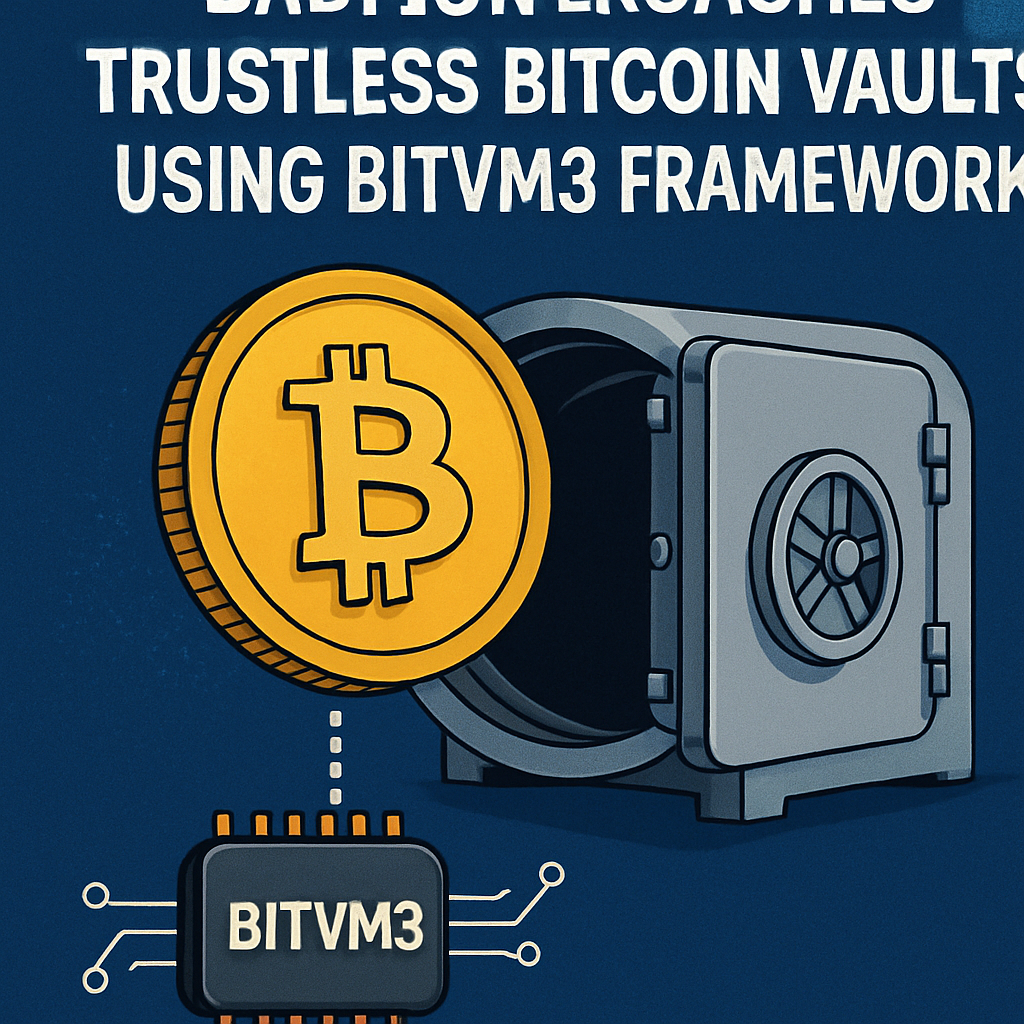Babylon has rolled out its latest protocol feature: trustless Bitcoin vaults that eliminate the need for centralized custodians. Announced in a white paper shared with CoinDesk on Aug. 6, 2025, at 18:00 UTC, the vaults utilize BitVM3, the newest iteration of the Bitcoin Virtual Machine (BitVM) framework for enabling smart contracts on the Bitcoin blockchain.
Traditional bridges and vault solutions often rely on trusted intermediaries to secure BTC assets before mirroring them on other chains. Babylon’s architecture leverages off-chain computation through garbled circuits and fraud-proof mechanisms, significantly reducing on-chain workload and on-chain gas costs. When a user deposits BTC into a vault, the system generates a zero-knowledge proof confirming the corresponding external chain collateralization without exposing private data.
Key features of the Babylon trustless vaults include:
- Decentralized Collateralization: BTC deposits are locked in a vault contract that ensures funds can only be released upon verification of a valid state transition on a connected proof-verifying chain.
- BitVM3 Efficiency: By shifting most computational steps off-chain using garbled circuits, BitVM3 produces compact on-chain proofs, reducing transaction size and lowering gas fees.
- Programmable Vaults: Vault operators can define withdrawal conditions, such as requiring a specific oracle signature or time lock, enabling advanced DeFi use cases like lending and stablecoin issuance.
- Native Staking Rewards: Staked BTC within the vault can earn yield through integration with proof-of-stake networks, with rewards distributed in Babylon’s native BABY token.
Babylon’s white paper outlines security considerations, including resistance to double-spend attempts and fail-safe mechanisms in the event of network congestion. The protocol’s fail-safe relies on a pre-committed dispute period during which vault operators can submit fraud proofs to reclaim collateral before time locks expire.
Institutional stakeholders in the Bitcoin ecosystem have expressed optimism about leveraging BTC on-chain collateral without counterparty risk, potentially unlocking over $1 trillion in Bitcoin liquidity for DeFi activities. Industry analysts note that securing BTC through on-chain proofs rather than custodian due diligence may significantly lower counterparty risk and compliance burdens.
Babylon’s launch follows growing demand for decentralized staking, with major protocols such as Lido and Rocket Pool capturing significant Bitcoin deposits. Babylon distinguishes itself by enabling direct BTC deposits without wrapping or intermediary tokens, offering a more native experience for Bitcoin maximalists.
The rollout of trustless vaults marks Babylon’s continued innovation in Bitcoin-centric DeFi, positioning BTC as a key collateral asset beyond simple store-of-value use cases. The protocol plans additional features, including multi-party vault trusts and cross-chain automation, in forthcoming white paper updates.
.
Comments (0)